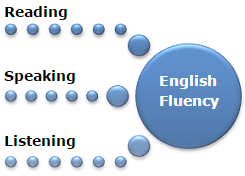Easy Conversation Practice Speaking English
Improve your English conversation. Frequent practice is the only proven way to increase English fluency. Supiki wants to give you the best chance at success. We provide a simple practice plan scheduler, conversation tips and a map so you can track your progress and conversations. 'This app is incredible. 160 Basic English Question & Answers for daily conversation In this English lesson you will learn how to ask basic questions and how to answer them. There are a number of expressions which we can use to ask questions, asking questions is the best way to practice English conversation.
Sometimes, even when you know a lot of English, you can have difficulty finding the right words or phrases to answer simple questions. Here are 20 of the most common questions in English – each one with five sample responses. General Questions 1. What do you do? This question means “What is your job/profession?” • I’m a student. • I work in a bank. • I’m unemployed at the moment.
• I run my own business. The word “run” means you are the primary person responsible for operating the business. • I’m retired now. I used to be an engineer. “Retired” means you have stopped working (usually after you are 60 or 65 years old). Are you married?
• Yes, I’ve been married for two years now. • I’m divorced. • I’m engaged – we’re getting married next year. • No, but I’m in a relationship. • Nope, I’m single.
“Nope” is an informal way to say “No.” 3. Why are you studying English? • So I can communicate when I travel. • I love learning new languages. • Because I’d like to immigrate to the U.S. • I’m thinking of studying in England. The correct way is “thinking of studying” and not “thinking to study.” 4.

Where/How did you learn English? • I took classes for three years. • I did an intensive course. • I’ve been studying on my own. You can also say “studying by myself.” • I picked it up from movies and songs. In this context, “picked it up” means “learned it casually.” • My girlfriend taught me.
What do you do in your free time? • I don’t have any free time! • I usually hang out with friends. “Hang out” means to spend time in an informal way. • I go running a lot. • I do volunteer work.
Easy Conversation Practice Speaking English Worksheets
• I like reading and relaxing at home. What’s the weather like? / How’s the weather? • Hot and humid. “Humid” means there is a lot of water vapor in the air. • It’s pouring – take an umbrella. “Pouring” means raining very heavily.
• A little chilly – you might wanna bring a jacket. “Chilly” means a little bit cold. • Gorgeous – a perfect summer day! • It’s quite cold – make sure to bundle up. “Bundle up” means to wear warm clothing for protection against the cold. What time is it?
/ Do you have the time? • It’s ten o’clock.
• It’s half past four. This means “4:30” • It’s a quarter to twelve. “A quarter” is 15 minutes – so this means “11:45” • Let me check my phone.
• Sorry, I don’t know. Shopping & Social Questions 8. Can I help you? / Do you need any help?
This is a question that you might hear from an employee or salesperson in a store. • No thanks, I’m just browsing. “Browsing” means looking casually at the items. • Yes – do you have this in a larger size? • Yes – where are the try-on rooms? “Try-on rooms” means the place where you can put on the clothes to see if they are the right size and if you like them.
• Yeah, can you tell me how much this is? • Yeah, I’m looking for something under $30. How’s it going?
Couldn’t be better! This means that everything is excellent. How are things with you? This means that things are OK.
• I can’t complain. • Do you really wanna know? Normally when people ask “how’s it going?” they expect a positive response like “fine” or “good.” If you say “Do you really wanna know?” it means that things are going badly, but you are not sure if the other person wants to listen to your problems or not. How are you feeling? Never better. • I’m all right. • Like I need a vacation.